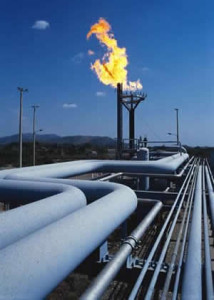 While declining gas prices have contributed to a number of job losses, the oil and natural gas industry continues to grow in Pennsylvania.
While declining gas prices have contributed to a number of job losses, the oil and natural gas industry continues to grow in Pennsylvania.
There’s still a high demand for oil workers in the region, according to National Public Radio. Local educational institutes, like the Pennsylvania College of Technology, have even started to offer classes geared toward this type of employment. For example, this school recently introduced the ShaleNet Training program, a course that prepares students for careers in the oil and gas industry through classroom-based instruction as well as field experience using the school’s mock oil rig. NPR reported that 100 students have participated in this training so far. About 98 percent of graduates secured jobs after graduation with an average hourly salary of $16.15. This sector has earning potential of between $70,000 and $80,000 per year, explained the source.
The Pittsburgh Tribune-Review reported that the oil and gas industry is especially a source of economic stability for the western part of the state. While the area has lagged behind national averages in terms of economic growth, the source explained that the projected expansion of this industry will help Pennsylvania catch up.
“Pittsburgh has not latched on to any current driving forces, economic sparks. That spark eventually can and should come from natural resources development,” said Kurt Rankin, an economist at PNC Financial Services, according to the Tribune-Review.
The effects of the oil and natural gas industry will likely be more long-term than instant. Economic gains will likely be seen over the course of the next decade, rather than the next year or two, noted the Tribune-Review. Economists expect prices and infrastructure to be the largest factors in determining how soon the state will see major benefits from this sector.
